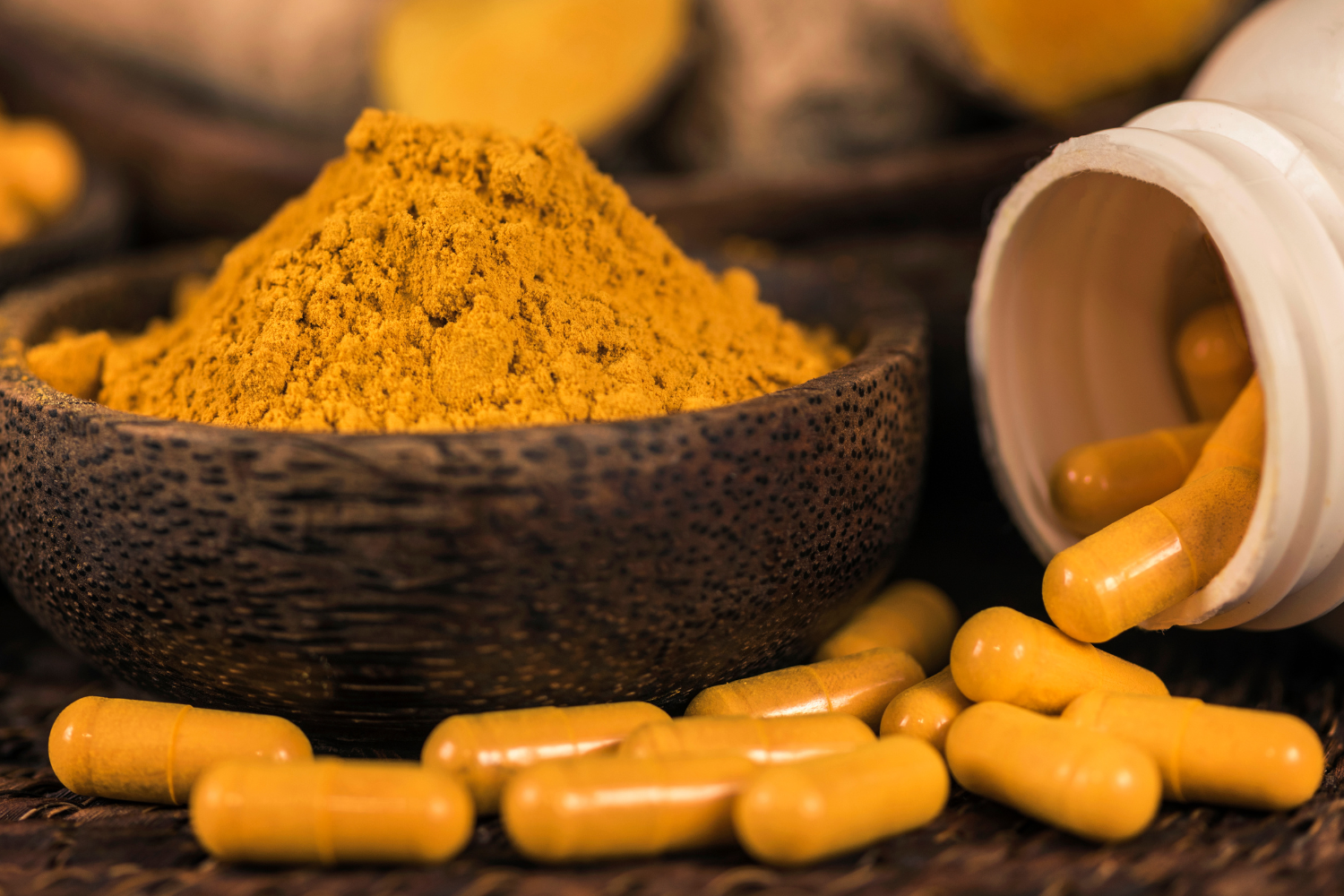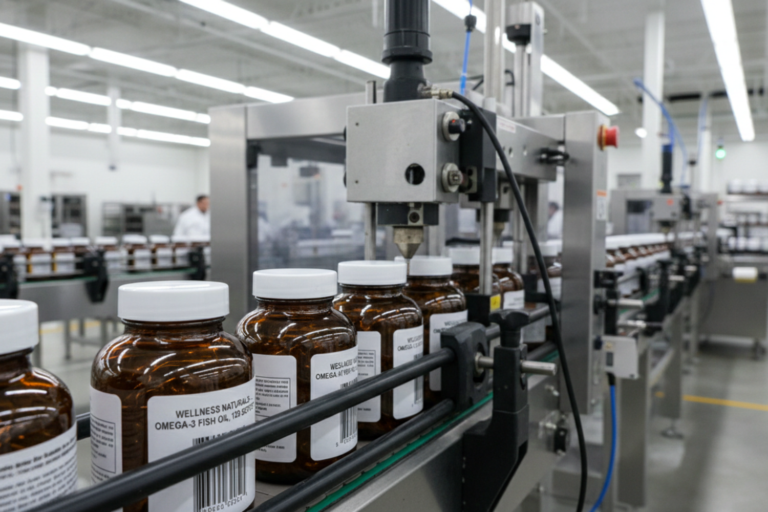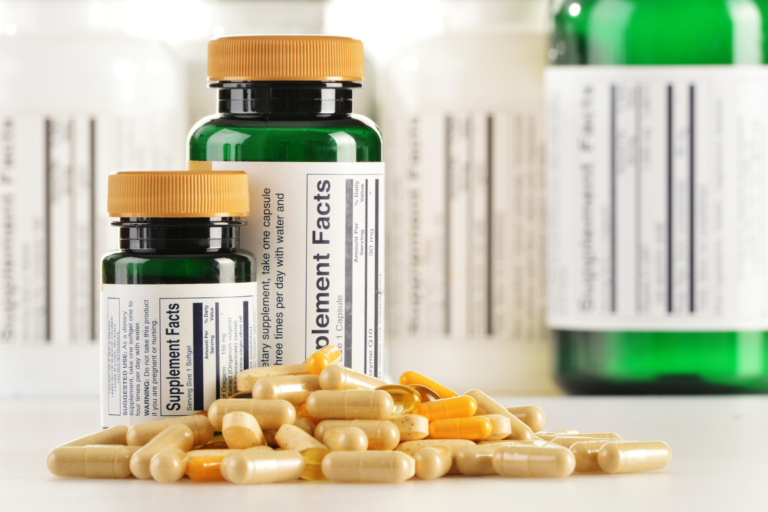Chronic inflammation is increasingly recognized as a key factor contributing to health issues like joint pain, heart disease, and cognitive decline. Supplements formulated to support a healthy inflammatory response may promote joint health, immune function, and overall wellness.
As consumer demand grows for natural, effective solutions, nutrition brands have an opportunity to develop high-quality, science-backed products that address these concerns while aligning with trends in health-conscious living.

Understanding Supplements that Support Inflammation
Anti-inflammatory supplements are formulated to support the body’s natural inflammatory response and help manage oxidative stress. While inflammation is a natural response to injury or infection, it can become harmful when it persists over time, contributing to chronic conditions such as arthritis, cardiovascular disease, and diabetes. These supplements may support the body’s natural responses to inflammation through ingredients like omega-3 fatty acids, curcumin, and antioxidants.
These supplements may support joint comfort, cardiovascular health, and immune function, depending on the ingredients and individual health conditions. Still, results depend on the supplement and individual health conditions. Addressing inflammation at its root promotes overall wellness and is especially valuable for individuals managing chronic health conditions or aiming to maintain long-term health.

Common Use Cases
Anti-inflammatory supplements are versatile products that cater to various health needs, making them increasingly popular among consumers looking for natural ways to improve their well-being. These supplements are particularly effective for managing inflammation-related health concerns and improving recovery from physical strain.
- Supporting joint comfort and mobility.
- Supporting recovery from physical activity or injury by reducing swelling and pain.
- Promoting long-term health by lowering chronic inflammation and its associated health risks.
Common Types of Supplements that Help Fight Inflammation
Anti-inflammatory supplements are available in several formats, each tailored to different preferences and lifestyles. These options ensure that consumers can easily incorporate these products into their daily routines for maximum benefit. From capsules to liquids, each format effectively delivers anti-inflammatory agents.
- Capsules/Tablets: Convenient options for concentrated doses of turmeric, omega-3 fatty acids, or curcumin.
- Powders: Perfect for mixing into drinks or smoothies, often featuring anti-inflammatory foods like superfoods and adaptogens.
- Gummies: A tasty choice for delivering nutrients such as vitamin C, turmeric, or natural antioxidants.
- Liquid Supplements: Quick-absorbing formulations ideal for herbal blends targeting inflammation and pain.

Benefits of Offering Supplements for Healthy Inflammation Response
Anti-inflammatory supplements are a growing category in the health and wellness market, allowing brands to meet consumer demand for natural solutions while expanding their product lines.
Addressing Consumer Demand for Natural Solutions
Research shows growing consumer interest in natural and holistic approaches to managing inflammation. Chronic inflammation has been linked to health issues such as heart disease, diabetes, and arthritis, prompting many to seek natural alternatives to improve their health and reduce risk. Anti-inflammatory supplements with ingredients like turmeric and omega-3 fatty acids cater to this demand by offering effective and science-backed solutions.
These products may appeal to consumers looking for natural options to support inflammation management, complementing other wellness strategies. By offering natural supplements, brands can appeal to consumers seeking safer ways to relieve pain and inflammation without relying on medications.
Expanding Product Lines for Health-Conscious Consumers
Anti-inflammatory supplements complement existing product categories such as joint health, immunity, and stress relief. Their versatility allows brands to market these products to a broad audience, from fitness enthusiasts to older adults managing arthritis or other chronic health conditions.
There are also opportunities to bundle anti-inflammatory supplements with complementary products. For instance, pairing turmeric capsules with collagen peptides or probiotics can create a complete solution for joint and gut health, appealing to health-conscious consumers looking for comprehensive support.
Building Brand Trust Through Evidence-Based Formulas
Consumers are more likely to trust brands that use clinically supported ingredients like curcumin, omega-3 fatty acids, and natural antioxidants. These ingredients are known for supporting a healthy inflammatory response and promoting overall health.
GMP (Good Manufacturing Practices), non-GMO, and organic certifications further enhance consumer trust. Highlighting these labels on packaging and marketing materials demonstrates a commitment to quality and safety, which is crucial in today’s health-conscious market.
Key Ingredients in Supplements for Better Inflammation Response
Anti-inflammatory supplements rely on various ingredients to reduce inflammation and support overall health. These include herbs, antioxidants, and nutrients that target inflammation and oxidative stress.
Anti-Inflammatory Herbs and Extracts
Herbs and plant extracts are key components of many anti-inflammatory products, offering natural ways to combat inflammation.
- Turmeric (Curcumin): A natural ingredient studied for its potential to support a healthy inflammatory response and manage oxidative stress.
- Boswellia Serrata: Known for reducing joint inflammation and improving mobility.
- Ginger Root: Eases inflammation and promotes digestion while offering additional immune support.
Omega-3 Fatty Acids
Omega-3 fatty acids, particularly EPA and DHA found in fish oil or algal oil, are known to support a healthy inflammatory response and cardiovascular health. These fatty acids are associated with supporting heart health, promoting cardiovascular function, and maintaining a balanced inflammatory response. Research suggests they also effectively manage conditions like arthritis and body-wide inflammation, making them a cornerstone of many anti-inflammatory supplements.
Antioxidants for Cellular Protection
Antioxidants protect cells from damage caused by inflammation and oxidative stress, playing a critical role in overall health.
- Vitamin C: Reduces oxidative stress, strengthens the immune system, and supports collagen production.
- Vitamin E: Shields cells from inflammation-related damage and supports skin health.
- Quercetin: A flavonoid that combats inflammation and helps manage histamine responses, promoting overall balance in the body.
Joint and Tissue Support
Joint health is a common focus for anti-inflammatory supplements, especially for consumers with arthritis or other mobility issues.
Collagen peptides may support joint health and assist in maintaining healthy connective tissues. These proteins also enhance skin elasticity and support overall tissue repair.
Similarly, glucosamine and chondroitin help alleviate joint pain and stiffness by targeting inflammation in cartilage, making them popular choices in joint health formulas.
Specialty Ingredients
Resveratrol, a potent antioxidant found in red wine and certain plants, is known for supporting cardiovascular health and a balanced inflammatory response. It reduces inflammatory markers and protects against heart disease.
Ashwagandha is an adaptogen that reduces stress-induced inflammation and promotes hormonal balance. This ingredient may help reduce stress-related inflammation and support overall well-being.

Steps for Nutrition Brands to Develop Healthier Inflammation Response Supplements
Developing anti-inflammatory supplements requires understanding consumer needs, ingredient quality, and effective marketing strategies. A step-by-step approach ensures that products meet market demand while standing out in a competitive space.
Conduct Market Research to Identify Consumer Needs
Understanding your target audience is essential for developing compelling products. Key demographics include aging populations managing joint pain, athletes seeking faster recovery, and individuals with chronic pain looking for natural solutions. Identifying these groups helps tailor your product offerings to meet their specific needs.
Staying informed about industry trends can also provide valuable insights. Consumers are increasingly drawn to clean-label formulations, herbal blends, and products that align with an anti-inflammatory diet. This research helps brands align with current demand and stand out.
Source High-Quality Ingredients
Partnering with reliable suppliers is critical for creating trusted anti-inflammatory supplements. Look for suppliers that offer sustainably sourced, clinically validated ingredients like turmeric, omega-3 fatty acids, and natural antioxidants. To appeal to health-conscious consumers, ingredients should align with certifications such as organic or non-GMO.
All ingredients must meet regulatory standards and undergo third-party testing to ensure safety and efficacy. This guarantees purity and potency, helping to establish your brand as a trusted provider of high-quality supplements.
Formulate for Targeted Inflammatory Support
Effective formulations often combine complementary ingredients to enhance absorption and maximize benefits. For example, pairing turmeric with black pepper extract (piperine) significantly improves its bioavailability, increasing its anti-inflammatory effects.
Consider developing specialized products targeting joint health, cardiovascular health, or overall wellness. Tailored solutions meet diverse consumer needs and position your brand as a leader in providing focused anti-inflammatory support.
Design Packaging and Labels for Health-Conscious Appeal
Packaging plays a crucial role in capturing consumer attention. Highlight key benefits such as “supports joint health,” “promotes a healthy inflammatory response,” or “supports heart health” directly on the label. These claims resonate with shoppers seeking specific health solutions.
Clean, modern designs with clear ingredient lists appeal to health-conscious consumers. Avoid cluttered visuals and focus on transparency to establish trust and emphasize the product’s natural, science-backed benefits.
Launch and Market Strategically
Educating consumers about the benefits of anti-inflammatory supplements can drive interest and sales. Blogs, videos, and social media campaigns showcase how your products reduce inflammation, support immunity, and improve overall well-being.
Offering free samples or introductory bundles can encourage first-time purchases. Consumers are more likely to try and commit to a product when they can experience its benefits firsthand.
Marketing Strategies for Supplements that Help with Inflammation
Effective marketing strategies focus on educating consumers, building trust, and offering value. These approaches help brands reach their target audience and foster long-term loyalty.
Educate Consumers About Inflammation and Wellness
Providing educational content is a powerful way to connect with consumers. Share articles and videos explaining how chronic inflammation impacts health, contributing to conditions like joint pain, heart disease, and weight gain. Highlight how supplements can help combat inflammation and improve wellness.
Visual content like infographics and short videos can break down complex information about key ingredients and their science-backed benefits. This approach makes the information accessible and engaging, encouraging consumers to learn more about your products.
Partner with Wellness Influencers and Experts
Collaborations with wellness professionals can amplify your brand’s reach. Partnering with health coaches, physical therapists, or fitness influencers can introduce your products to a broader audience while adding credibility.
Sharing real-life testimonials and success stories further builds trust. Highlight how your supplements have helped consumers reduce inflammation, improve mobility, or enhance overall health. These stories resonate with potential customers and encourage them to try your products.
Offer Value with Bundles and Subscriptions
Creating product bundles is an effective way to add value and encourage higher purchases. Pair anti-inflammatory supplements with complementary items like collagen, omega-3s, or probiotics to develop comprehensive health solutions.
Subscription discounts encourage long-term use, increasing customer retention. Offering convenience and savings through auto-renewal options helps build loyalty while ensuring consumers consistently use your products.

Meeting the Demand for High-Quality Supplements that Support Healthy Inflammation Response
The growing demand for anti-inflammatory supplements highlights their role in holistic wellness routines, addressing chronic inflammation, and supporting overall health. Nutrition brands can capitalize on this trend by prioritizing clean, effective, evidence-based formulations catering to diverse consumer needs. Transparency and efficacy are essential for building trust and loyalty, ensuring your products stand out in the competitive health and wellness market.
Frequently Asked Questions
What certifications should anti-inflammatory supplements have?
GMP certification, non-GMO, USDA Organic, and allergen-free certifications are ideal.
How long does it take to develop anti-inflammatory supplements?
Typically 6–12 months, including formulation, testing, and regulatory approval.
What are the most popular ingredients in anti-inflammatory supplements?
Turmeric, omega-3 fatty acids, ginger, and boswellia are top choices.
Are anti-inflammatory supplements safe for daily use?
Most are safe when used as directed, but formulations should adhere to recommended dosages.
Can anti-inflammatory supplements be combined with other products?
Yes, they pair well with joint health, immune support, or stress relief supplements for comprehensive wellness solutions.
References
- Arthritis Foundation. (n.d.). Glucosamine, Chondroitin for Osteoarthritis Pain. https://www.arthritis.org/health-wellness/treatment/complementary-therapies/supplements-and-vitamins/glucosamine-chondroitin-osteoarthritis-pain
- Centers for Disease Control and Prevention. (2024). About Chronic Diseases. https://www.cdc.gov/chronic-disease/about/index.html
- Harvard Health Publishing. (2023). Inflammation: A unifying theory of disease? https://www.health.harvard.edu/staying-healthy/inflammation-a-unifying-theory-of-disease
- Mikulska, P., Malinowska, M., Ignacyk, M., Szustowski, P., Nowak, J., Pesta, K., Szeląg, M., Szklanny, D., Judasz, E., Kaczmarek, G., Ejiohuo, O. P., Paczkowska-Walendowska, M., Gościniak, A., & Cielecka-Piontek, J. (2023). Ashwagandha (Withania somnifera)-Current Research on the Health-Promoting Activities: A Narrative Review. Pharmaceutics, 15(4), 1057. https://doi.org/10.3390/pharmaceutics15041057
- National Institutes of Environmental Health Sciences. (2024). Inflammation. https://www.niehs.nih.gov/health/topics/conditions/inflammation
- Office of Dietary Supplements. (2024). Omega-3 Fatty Acids – Health Professional Fact Sheet. https://ods.od.nih.gov/factsheets/Omega3FattyAcids-HealthProfessional/
- U.S. Department of Agriculture. (2023). OMG- OMeGa-3s! https://www.ars.usda.gov/plains-area/gfnd/gfhnrc/docs/news-articles/2012/omg-omega-3s
- World Health Organization. (2024). Noncommunicable diseases. https://www.who.int/news-room/fact-sheets/detail/noncommunicable-diseases



